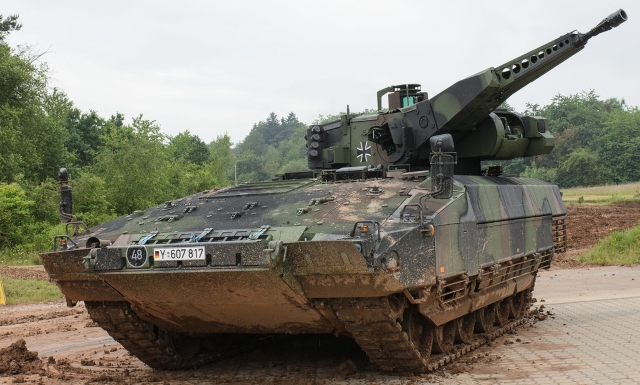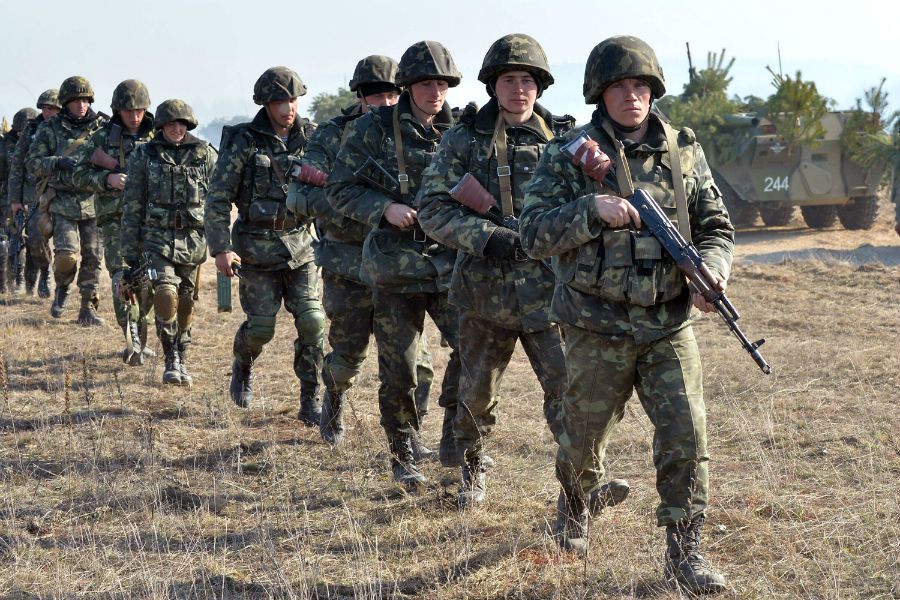More German tanks, equipment deemed out of action: Is Berlin's military even functional?
As more German military equipment has been found to be inoperable, questions are rising anew about whether the country can even defend itself, let alone contribute much to NATO, should Berlin be called upon to support another country under attack.
And what makes all of this even more frustrating is that Germany is the biggest economy in Europe/NATO.
According to
a report from German outlet DW.com, the army's "cutting edge" Puma tanks --
all of them -- are unusable and otherwise unfit for action:
The German military faced yet another PR disaster on Monday after reports emerged over the weekend that a training exercise involving one of its key weapons, the Puma tank, left not a single one operational.
The conservative opposition was quick to jump on the news as supposed evidence of Chancellor Olaf Scholz's mismanagement of the Bundeswehr, particularly under the control of Defense Minister Christine Lambrecht.
"It's a nightmare," Christian Democrat (CDU) parliamentary group leader Johann Wadephul told the
ARD broadcaster. "The Puma is supposed to be a main weapon system of the German army. And if the Puma is not operational, then the army is not operational."
"The criticism from parliament is entirely justified," Lambrecht noted in a statement released Monday. "Our troops must be able to rely on weapon systems being robust and stable in combat."
She also said that she had commissioned the pertinent departments of the military, as well as the Puma's manufacturer, Krauss-Maffei Wegmann and Rheinmetall,
to give her an analysis of what went wrong with the equipment by the end of December. Older Marder tanks will be utilized during upcoming NATO exercises, as had been planned.
"The highly complex Pumas, which cost €17 million ($18 million) each, took over a decade to develop,"
DW.com reported. "Originally green-lit in 2002, the tank was meant to replace the older Marders, which Germany has been using since the 1970s. But the Puma was plagued with technical issues, including a leaky roof hatch, restricted sight lines for the driver, and electronics issues. Even when completed in 2015, not all the Pumas could be used."
Issues with the Puma tanks come on top of another problem: Recent reports in German media said that the remainder of the country's military is also in bad shape, including one that suggested the army only has enough ammunition to last for two days' worth of intense combat -- a fact that was leaked by defense sources, likely to spur German legislators to do something about it.
"If this is true (and such information cannot be confirmed, as it is a state secret), German ammunition supplies are well below the standards expected by NATO, which requires each member to have 30 days' worth of ammunition," the outlet reported. "To make up that shortfall alone, defense experts say Germany needs to invest another €20 - €30 billion."
Some German lawmakers were furious and are already demanding that something be done to correct the issue if, in fact, it is true.
"What I now expect from the arms industry is for capacities to be built up," Lars Klingbeil, leader of Scholz's center-left Social Democratic Party (SPD), told
ARD in early December. "But to wait and say: Let's see what the politicians offer us — that's not an attitude with which we can reduce these deficits."
"If the German industry can't manage it … then we have to see what we can buy from abroad, for example, from other NATO partners," Klingbeil added.
That in and of itself is insulting, considering that Germany is a manufacturing powerhouse. But again, if a country's priorities are not in the area of defense, then it only makes sense the manufacturing sector for defense is lacking.
All of which come on top of Russia's invasion of Ukraine. Should Moscow
pivot to a wider war in Europe, Germany won't be able to contribute much except excuses.
Sources include:
DW.com
NaturalNews.com
 Parler
Parler Gab
Gab










